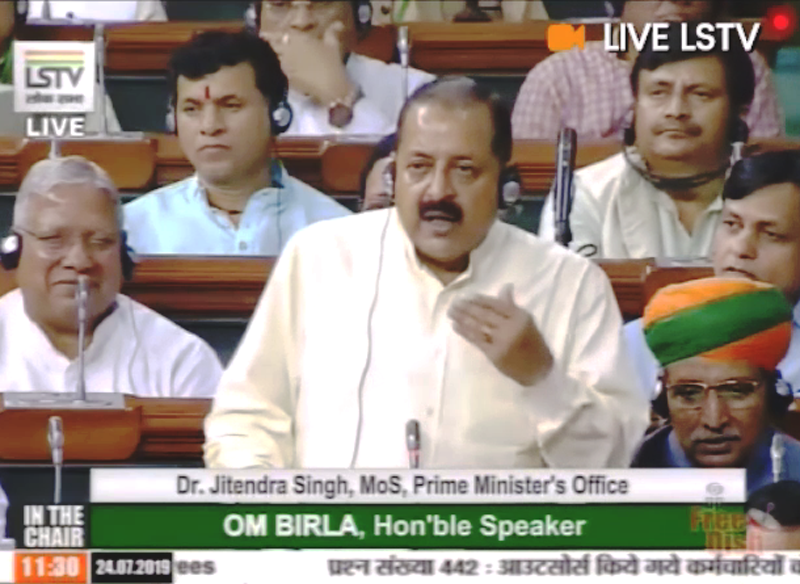Excelsior Correspondent
NEW DELHI, July 24: Union Minister of State (Independent Charge) Development of North Eastern Region (DoNER), MoS PMO, Personnel, Public Grievances, Pensions, Atomic Energy and Space, Dr Jitendra Singh said here today that in the last over five years, the Modi Government has taken several revolutionary decisions for employees’ welfare.
Replying to a series of questions in the Lok Sabha today, which were mainly pertaining to the contractual employees, Dr Jitendra Singh said, the Modi Government has in a brief period of five years, taken several revolutionary decisions and amended several long-standing laws in order to make these more compatible for the benefit of government employees.
It was the Modi Government, said Dr Jitendra Singh, which in 2017 brought about the Maternity Benefit (Amendment) Act, thus increasing the maternity leave for women employees from earlier 12 weeks to now 26 weeks. Similarly, it allowed the provision employees to work in night shifts in some of those areas where earlier it was forbidden, he said.
Not only this, Dr Jitendra Singh referred to the Minimum Wages Act of 1948 which was for the first time amended in 2017 to increase the minimum wage limit by 40%. Similarly, he said, the Payment of Wages Act of 1936 framed during the British era was also amended in 2017, whereby the ceiling was enhanced from Rs.18000 per month to Rs.24000 per month.
Making full utility of the modern technology, Dr Jitendra Singh informed the House that on 16th October 2014, Prime Minister Narendra Modi launched “Shram Suvidha” Portal whereby it is possible now to carry out emergency inspections, mandatory inspections, operational inspections and other kinds of checks from time to time to ensure the well being of employees.
In his reply, Dr Jitendra Singh reiterated that for administrative exigencies of work, efficiency or unavoidable circumstances, outsourcing of services through contract is resorted to. But, the procedures followed are the same as envisaged in General Financial Rules (GFR) 2017 and the protection of the interests of the contractor’s employees is also enforced and regulated as per the rules.


